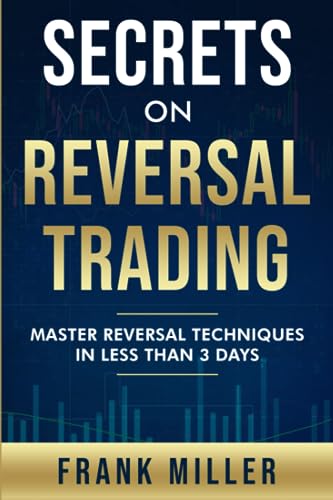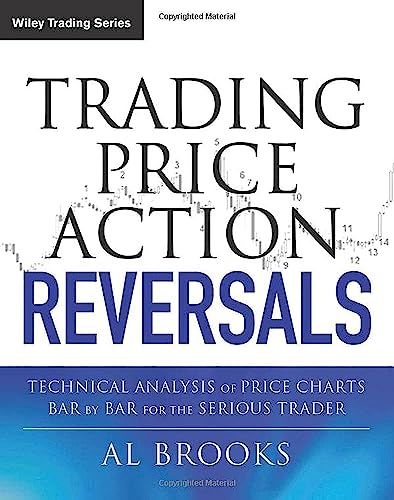- Miller, Frank (Author)
- English (Publication Language)
- 92 Pages - 11/01/2020 (Publication Date) - Independently published (Publisher)
Introduction
Reversal trading is a powerful strategy that can unlock significant profits in the financial markets. By identifying key reversal points, traders can capitalize on market shifts and make profitable trades. In this article, we will explore the concept of reversal trading and how it can unleash profits for traders.
Understanding Reversal Trading
Reversal trading is a technique used by traders to identify potential trend reversals in the market. It involves analyzing price patterns, indicators, and other market factors to determine when a trend is likely to change direction. By spotting these reversal points early, traders can enter trades at favorable prices and profit from the subsequent price movements.
The Importance of Timing
Timing is crucial in reversal trading. Traders need to be able to identify when a trend is losing momentum and about to reverse. This requires a keen understanding of market dynamics and the ability to interpret price action effectively. By mastering the art of timing, traders can maximize their profits and minimize their risks.
Key Indicators for Reversal Trading
Several indicators can help traders identify potential reversal points. Some commonly used indicators include:
1. Moving Averages: Moving averages can provide insights into the overall trend direction. When the price crosses above or below a moving average, it can signal a potential trend reversal.
2. RSI (Relative Strength Index): The RSI is a momentum oscillator that measures the speed and change of price movements. Overbought or oversold conditions indicated by the RSI can suggest an upcoming reversal.
3. Candlestick Patterns: Candlestick patterns, such as doji, hammer, or engulfing patterns, can provide valuable information about potential trend reversals. Traders often use these patterns in conjunction with other indicators for confirmation.
Implementing a Reversal Trading Strategy
To implement a reversal trading strategy effectively, traders should follow these steps:
1. Identify potential reversal points using technical analysis tools and indicators.
2. Confirm the reversal signal with additional indicators or price patterns.
3. Set entry and exit points based on risk management principles.
4. Monitor the trade closely and adjust stop-loss and take-profit levels as necessary.
5. Evaluate the trade’s performance and learn from both successful and unsuccessful trades.
Conclusion
Reversal trading can be a profitable strategy for traders who can accurately identify trend reversals. By mastering the art of timing and using key indicators, traders can unleash profits in the financial markets. However, it is essential to remember that reversal trading involves risks, and proper risk management should always be practiced. With the right skills and knowledge, traders can take advantage of market reversals and achieve success in their trading endeavors.
- Miller, Frank (Author)
- English (Publication Language)
- 92 Pages - 11/01/2020 (Publication Date) - Independently published (Publisher)
- Hardcover Book
- Brooks, Al (Author)
- English (Publication Language)
- 576 Pages - 01/24/2012 (Publication Date) - Wiley (Publisher)
- Turner, Robert (Author)
- English (Publication Language)
- 83 Pages - 06/18/2023 (Publication Date) - Independently published (Publisher)
- Teally, Robb (Author)
- English (Publication Language)
- 142 Pages - 08/06/2024 (Publication Date) - Independently published (Publisher)
Last Updated on November 3, 2023 by ingmin




